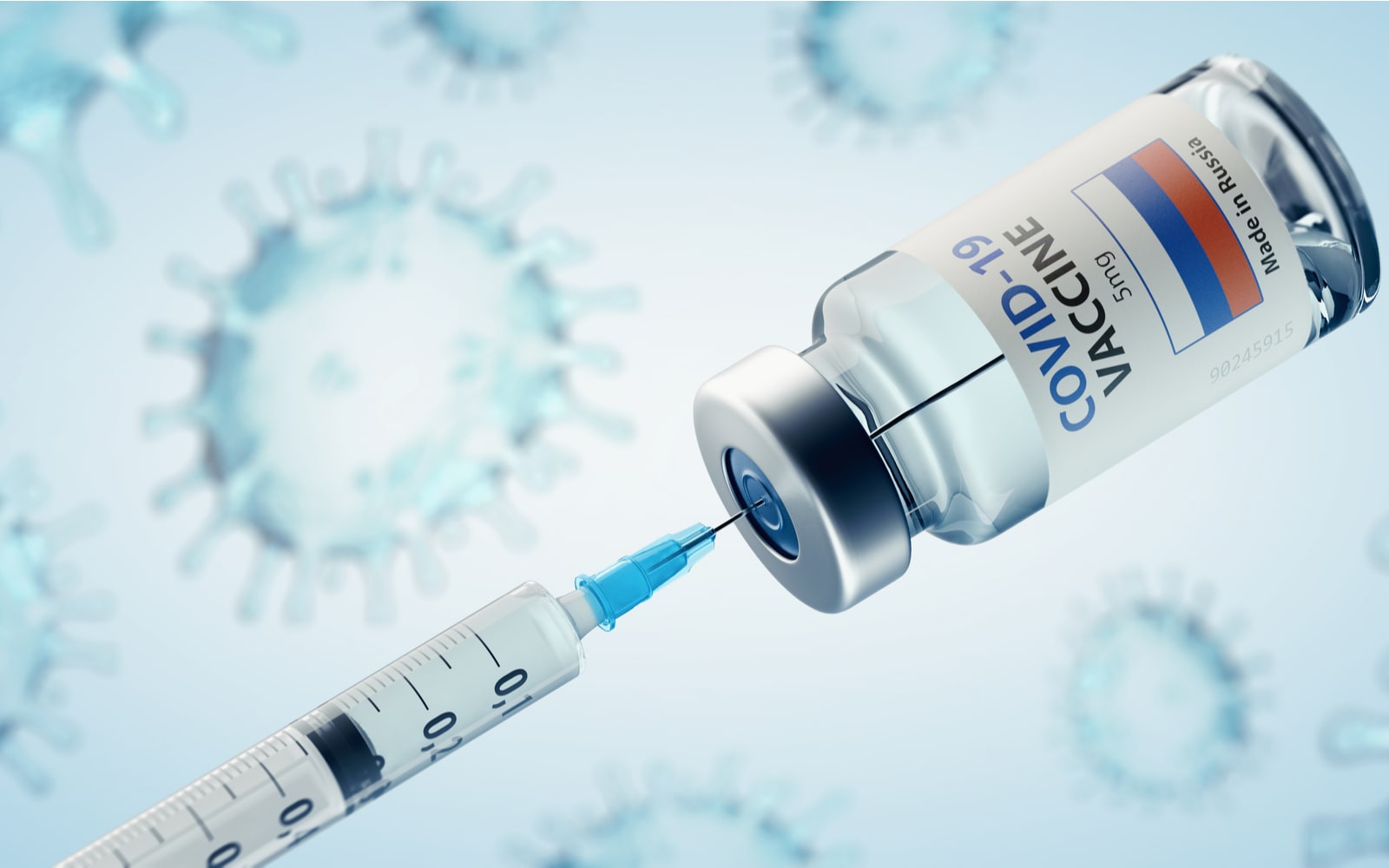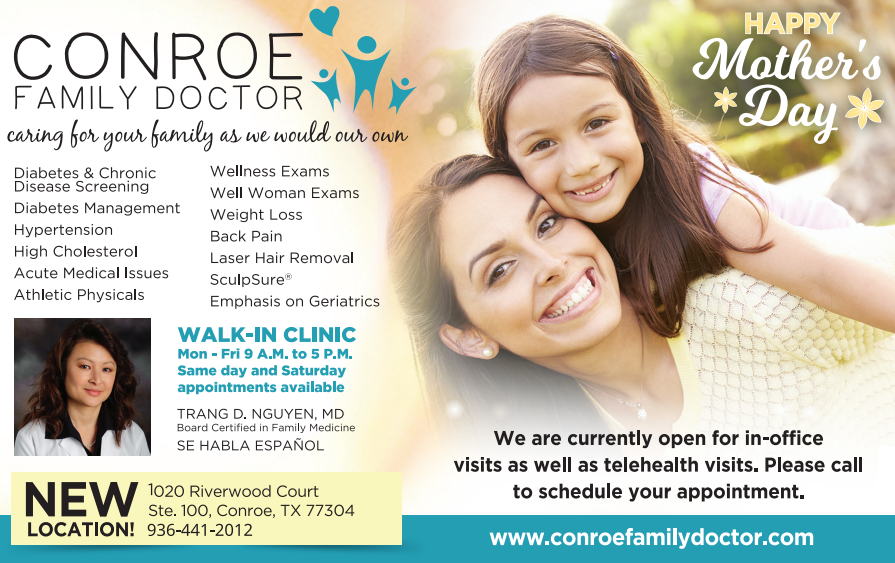Conroe Family Doctor in Conroe, Texas Wishing you a Safe and Happy 4th of July! Stay Safe & Healthy from COVID this 4th of July. We are open for in-office visits as well as telehealth visits. Please call (936) 441-2012 or go Online www.conroefamilydoctor.com to schedule your appointment.

The battle against the COVID-19 pandemic has been long and full of unexpected events. Some of them, including the success and rapid delivery of the vaccine, have been positive. Others haven’t been so bright, such as the discovery that children can carry COVID asymptomatically (without symptoms). This battle is still ongoing, and we’re learning more about the disease every day. One such discovery is that of a condition known as Long COVID. Those who develop this condition will continue to experience symptoms for weeks, months, or even years after the initial infection passes. This has brought into question whether or not the vaccine is an effective defense against developing Long COVID symptoms.
Can Vaccinations Protect You From Long COVID?
It appears to be a trend that answers related to this disease aren’t exactly clear-cut. When scientists first discovered the variants, there was worry that they would be worse than the original. It turned out that the answer was both yes and no. The transmission rates of the variants tended to be higher, with some seeming to be less affected by the vaccine. However, those variants that showed higher transmission rates tended to develop less severe symptoms than the original strain. Fears over children’s health determined that their survival rates were higher, but they could carry the disease without showing symptoms.
When it comes to the effect of vaccines on Long COVID, the situation is much the same. There is no indication that vaccines will protect you from developing Long COVID. However, Long COVID tends to appear more frequently in those who had more severe cases of COVID. Vaccines have been revealed to reduce the risk of developing COVID and limit the severity in those who have them. As a result, vaccines can indirectly reduce the risk of Long COVID. While this seems like splitting hairs, the distinction is important. Further research is being done into new versions of the vaccine. One focus of this ongoing research is to determine if it’s possible to develop a vaccine that directly reduces instances of Long COVID.
Current studies show that it’s unlikely that Long COVID will ever be able to be completely prevented by vaccines. However, they can reduce the rate at which COVID spreads and better prepare the body to fight it. It’s also important that those who develop the condition get on antivirals. Early adoption of antivirals can reduce how high the virus population will get in the patient. Virus levels have been shown to directly impact the development of Long COVID, with higher populations increasing the risk.
Contact Your Doctor To Discuss Antivirals and Long COVID
You must speak to your doctor about getting vaccinated if you aren’t already. Keeping up with the vaccinations, including any available boosters, is the best way to protect you and your family. The most effective method of preventing Long COVID remains not catching COVID in the first place. Reach out to your physician and get your vaccines up to date today!

Since introducing the COVID vaccine, there has been growing confidence in its safety and effectiveness. Ongoing studies show no method of preventing transmission as effective as receiving a vaccination. Every new person who receives a COVID vaccination along with the necessary boosters puts us closer to an end to the pandemic. Countless people have eagerly stepped forward to receive the vaccination, driving us closer to the safe reopening of our schools and businesses. The majority of those who have been vaccinated are adults.
Helping Getting Your Child Vaccinated Without Distress
It’s common for children to be a little nervous about seeing the doctor. This can be intensified if they understand they’re going to get a shot when they arrive. We can take measures to help soothe our child’s worries and make their vaccination visit less scary. While some parents simply opt to push their child through the experience, this can have a lasting impact. It can reduce their trust in doctors and their parents and limit their willingness to seek medical help as adults. This can all be avoided by taking a few small steps to prepare your child for the road ahead.
- Talk With Them: If your child is of school age, it’s likely they’ve heard a lot of talk about the vaccine. The reliability of the information they’ve received may be questionable, however. Some of those they’ve spoken with may have tried to soothe their concerns. On the other hand, some may have been less helpful in their approach. Whether it’s another adult that doesn’t trust vaccines, or another child trying to scare them, talking can help. Encourage them to ask their questions about the vaccine, and make sure you’re giving them the right information.
- Be Honest: One of the most important things you can do is be honest with your child. New experiences can be exhilarating and scary in equal measure. It’s common for children looking forward to something new to go to extremes in their emotional responses. Being honest with them can help soothe their concerns by setting proper expectations. Let them know the needle will be a quick poke but not very painful. Tell them to let the nervous know they’re nervous and what to expect after the shot.
- Work With Them: If you speak with your child and formulate a plan, you can make them feel empowered. Children who participate in their health care learn valuable lessons. The first is that they have the power to make decisions for themselves. The second is that health care doesn’t have to be scary. Many other lessons can come from this experience. Encourage them to tell you what will help them stay calm. Some children may want to bring a favorite toy; others may suggest a reward after. Find something that works for both of you.
Beyond Vaccinations
These practices can be effective even beyond vaccinations. When you start involving your child in their health care, they learn how to make important choices. They’ll also know they are respected and have the power to make them. While they have plenty to learn, being an active patient is something we all should practice. Get them started with vaccines, and they’ll be sure to speak to their health care provider as adults.
Conroe Family Doctor in Conroe, Texas Wishing you a Safe and Happy Mother’s Day! Stay Safe & Healthy from COVID this Mother’s Day. We are open for in-office visits as well as telehealth visits. Please call (936) 441-2012 or go Online www.conroefamilydoctor.com to schedule your appointment.

It’s a well-known fact that our memory can trend toward the unreliable as we age. The specifics of how difficulty remembering things happens is different from case to case. While these are common and generally nothing to worry about, they’re worth paying attention to. Our long-term and short-term memory both begin to suffer as the years go by. While momentarily forgetting where we parked may be a minor inconvenience, forgetting how we arrived at the store is worrying indeed. Knowing that memory lapses tend to become more common, you may be wondering if there’s a way to slow the advance.
How Age-Related Memory Loss Happens
You’ve had a minor memory lapse if you’ve ever realized that you’ve forgotten where you’ve placed your keys as you brew your morning tea. These lapses in recall happen to people of every age, with a tendency to become more common as we get older. They’re nothing to truly worry about, though they can be a warning sign if they happen frequently. Think about your lifestyle first before you start worrying that you’re experiencing the beginning of a serious problem. Do you eat properly? Are you getting enough sleep? Are you one of the countless Americans with ADHD? It’s important to rule out all the known reasons you may be having lapses in memory before becoming worried.
When we think about our memory, we tend to think of it in general terms. The truth is that our memory is divided into two separate sectors:
- Short-Term Memory – Tracks anything that occurs in the last 30 seconds. At this point, our memories generally transfer over into long-term memory.
- Long-Term Memory – This is the cold storage of our memory. All evidence supports the idea that our LTM has a functionally unlimited storage space. The methods by which we recall things stored here are the subject of ongoing study.
One of the mysteries of our memories is why some important memories can get lost while other, less consequential ones can be recalled with ease. The truth is that the large majority of our life is stored in recesses we’ll likely never recall on purpose. If you’ve ever had a memory suddenly bubble that you thought long-forgotten, or can’t seem to forget something you’d rather was gone, you know what we mean.
Both our short-term and long-term memory can slowly decay over time. It may be more difficult for us to switch between tasks and become a bit more forgetful. Things we know like the proverbial back of our hand may suddenly become difficult to recall. It can be limited to a few words that are always “right on the tip of our tongue” or, in serious cases, involve significant memories like our wedding or children’s names. One warning sign concerning memory problems is a vocabulary that seems to be diminishing.
Can Multivitamins Help?
There have been ongoing studies researching ways to preserve or even restore our memory from loss. One study was conducted over a period of three years and revealed that taking a multivitamin daily provided significant protection against memory loss. Those who took the multivitamin showed a 60% reduction in loss of cognition over those who didn’t. Clearly, daily multivitamins provide meaningful defense against the advance of memory loss.






